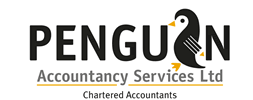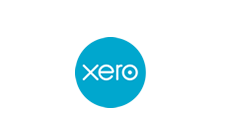VAT on barter and non-monetary payments
Your business sometimes sells goods and services to customers in exchange for their goods and services rather than money, i.e. a barter arrangement. How do you account for VAT on these deals?

Free goods and services
The starting point is that no VAT is payable on services that you supply free of charge, such as a firm of accountants doing tax and auditing work for a charity without being paid. However, VAT is payable on goods that you supply freely, the amount due is based on the open market value of the goods in question.
You will not account for output tax on goods you give away as a business gift, as long as the value of all gifts given to that person or business does not exceed £50 in any rolling twelve-month period. If you exceed the £50 limit, output tax is also payable on the other gifts made in the previous twelve months.
Barter is not a gift
If you do not receive a monetary payment from your customer because they supply you with their own goods or services in return, you have not made a free gift. You have received a non-monetary consideration for your goods or services and must account for output tax in the same way as if you were paid by, say, cheque, cash or an online bank payment.
Example. Linda is VAT registered as a window cleaner and cleans the windows at her local golf club once a month in return for free playing membership. She has received a non-monetary payment for her services.
How is VAT calculated?
HMRC’s view about such arrangements is clear:
“If the consideration for a supply is not in money (as in a barter transaction)...the tax value of the supply is the monetary equivalent of the consideration (the open market value).”
In Linda’s example, the value will be the open market value of the free membership she has received. In other words, VAT is payable on the amount she would have paid if the barter arrangement did not exist.
Care is needed with VAT inclusive and exclusive calculations. For example, if the club’s annual playing membership is £500 plus VAT, then Linda’s window cleaning services are also valued at £500 plus VAT, i.e. the output tax to declare is £100. If the membership fees are exempt from VAT, as is the case with a golf club managed by its members on a voluntary basis, the value of Linda’s services will be £500 including VAT.
What about partial barter deals?
Your business might discount the fee you charge in return for free services from another business. Is the VAT you declare based on the discounted amount or the full value of the separate supplies? For example, if your website design business charges £500 per month plus VAT to a marketing business but you agree to reduce this fee to £300 plus VAT if they do some marketing work for you, this is another example of barter, with two separate supplies taking place. You have made sales of £500 per month plus VAT and received marketing services worth £200 plus VAT from a supplier.
The easy solution with all business-to-business barter transactions is for both parties to issue tax invoices. The invoices will be based on the gross value of charges made, i.e. without any netting off.
Related Topics
-
Farms and IHT - what’s really happening?
The media is full of calamitous headlines about the so-called “tractor tax” but is short on details. If you’re a farmer or landowner, what might the inheritance tax (IHT) changes really mean to you and how might you mitigate the impact?
-
Is landlord correct to charge VAT on rent invoices?
Your business rents its trading premises but you are concerned that your landlord is incorrectly charging VAT on some invoices. Your business can fully claim input tax, so is there really any issue?
-
Business rates reform - where are we now?
You need to delve into the small print of the Autumn Budget to find details of changes to the business rates. You’ll find that instead of the promised help for high-street businesses many will face higher charges in April 2025. What’s the full story?






 This website uses both its own and third-party cookies to analyze our services and navigation on our website in order to improve its contents (analytical purposes: measure visits and sources of web traffic). The legal basis is the consent of the user, except in the case of basic cookies, which are essential to navigate this website.
This website uses both its own and third-party cookies to analyze our services and navigation on our website in order to improve its contents (analytical purposes: measure visits and sources of web traffic). The legal basis is the consent of the user, except in the case of basic cookies, which are essential to navigate this website.